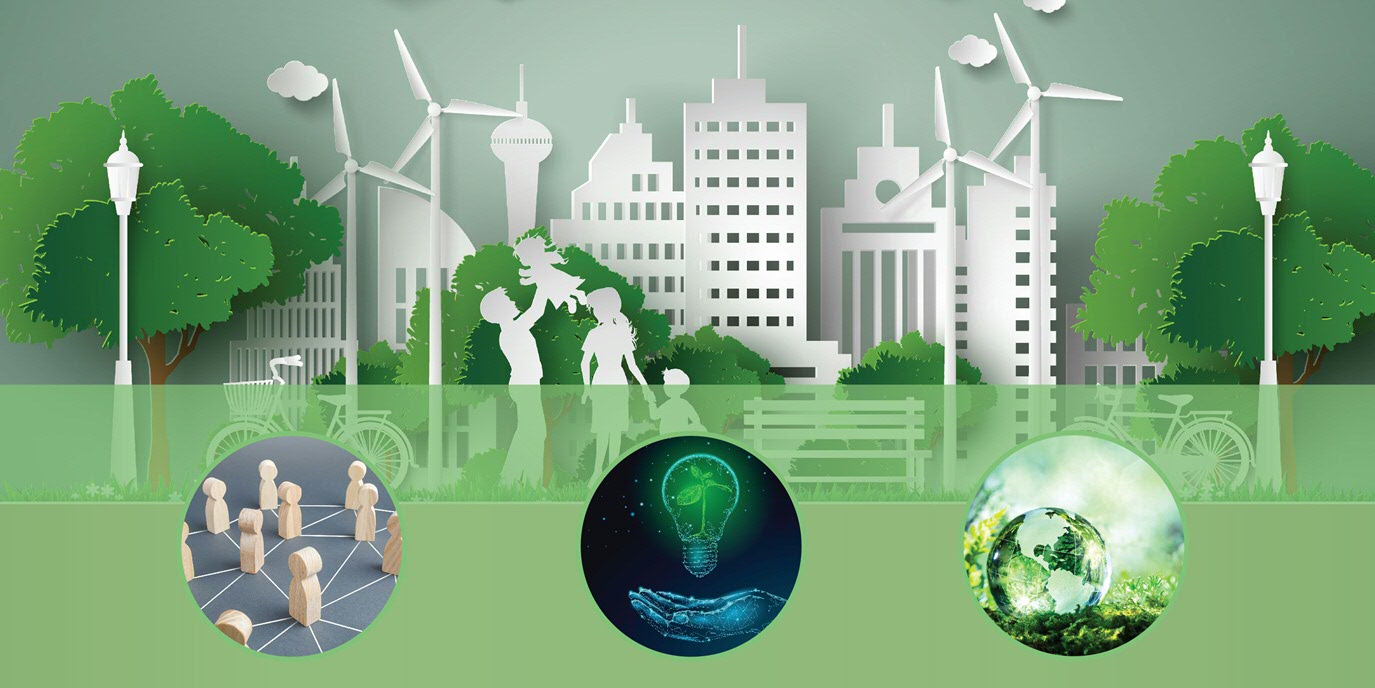Science, Technology and Society

Overview
Science and technology are indispensable components of the transition towards a more sustainable world, but may also result in new societal or environmental problems. To understand the various ways of interactions between science, technology and society is the main goal of our research. We focus on several related questions, including the following.
First, how to integrate insights from across the social sciences in systems and structural perspectives, particularly those of sociotechnical transitions, in ways that enhance understanding of system behaviour? Here we are particularly thinking of how actor-level processes can be better taken account of, where actors are individuals as well as organisations.
Second, how can various stakeholders be meaningfully involved in environmental planning, scenario development and decision-making, while meeting multiple societal objectives? For instance, how to organize processes of co-creation with farmers for sustainable agriculture, or with energy cooperatives for socially acceptable siting of wind turbines?
Third, what are key factors at different scales of time and space, influencing socio-technical or socio-scientific pathways, and how to align these different scales? For instance, how do investments, technological structure and governmental policy at national scale determine regional transition options? Or: how can small scale regional applications be upscaled to significantly contribute to a national energy transition?
Theme contact person
Project related to this theme
European project JUSTNORD

JUSTNORTH is an European project designed to explore the multitude of ethical systems that coexist in the Arctic, as a starting point to assess the viability of new economic activities in the region.
Global climate change has launched intense speculation on Arctic resources. Increasing geopolitical tensions among some of the Arctic states increases the importance of respecting different value systems while finding common values to help strengthen the links between Arctic and non-Arctic entities.
Contact person: Paul Upham
Project related to this theme
Decarbonisation project of the steel industry

This is a project of the UK Centre for Research into Energy Demand Solutions The steel industry is one of the most carbon intensive sectors and is challenging to decarbonise. There have been efforts to develop various routes for decarbonising steel production, such as use of hydrogen, carbon capture and storage (CCS), biomass and some industry roadmap development.
What is lacking, and what CREDS work aims to provide, is an integrated strategy that incorporates technologies, policies, stakeholders, particularly accounting for their interactions. This work also involves collaboration with the National University of Asuncion, Paraguay
Contact person: Paul Upham
Project related to this theme
COMETS project
COMETS (Collective Action Models for the Energy Transition and Social Innovation) is filling the knowledge gaps around citizen engagement in the energy transition to renewable sources by investigating and quantifying the aggregate contribution of Collective Action Initiatives (CAIs) in the energy sector at both national and European levels. [link to (external) project website].
Contact person: F. (Franco) Ruzzenenti
Project related to this theme
CORISE project
‘Local Energy Communities: Responsible Innovation Towards Sustainable Energy’. The main objective of this project is to align social and technical innovation through investigating the innovative potential of local energy initiatives in terms of technology, social embeddedness and normativity as well as researching the innovative potential of emerging sustainable energy technologies, including their social and normative dimensions. [link to project website]
Contact person: Dr. H.J. (Henny) van der Windt
Project related to this theme
ENSYSTRA Project
The ENergy SYStems in TRAnsition Innovative Training Network: is the unique interdisciplinary Marie Skłodowska-Curie Innovative Training Network, funded by the Horizon 2020 Programme of the European Commission, targeting solutions for integrated energy systems transition.
Contact person: D. (Dirk) Kuiken
Project related to this theme
Neighborhood Heat (Buurtwarmte) project
This project explores social, economic and technical questions related to district heating. By taking the user’s perspective as a starting point, the support for this type of sustainable district heating may be increased. The aim of the project is to gain insight into the processes that determine the design and execution of a heat network, the relationship between them and the possibilities for greater involvement of residents and energy cooperatives.
Contact person: Dr. H.J. (Henny) van der Windt
Previous projects
EDULINK-FSBA
(2013-2017)
Dr. Peter Weesie was the project leader of the EDULINK-FSBA project (2013-2017) financed by the European Development Fund through the EDULINK Programme of the African, Caribbean and Pacific Group of States. Within the FSBA project, the University of Eldoret (Kenya), the University of Nigeria in Nsukka (Nigeria), the University of Ouagadougou (Burkina Faso) and the University of Groningen worked together in the field of food security in Africa and the role of biotechnology in sustainably increasing food production. After an implementation period of 42 months, the project has come to an end in February, 2017.
Contact person: p.d.m.weesie rug.nl
Responsible innovation in Dutch potato breeding
(finished November 2020)
Societal and technological development do not happen independently from each other but should rather be approached from a so-called co-evolutionary framework that considers both domains as strongly coupled and interweaved. As an example, the development of hybrid breeding technology has been part of a comprehensive socio-technical transition of agriculture that can be characterized as the global emergence of agro-industrial production chains. This development has led to a strongly polarized debate about the merits and impacts of industrialized agricultural production. > more information.
Contact person: J.A.A. (Sjaak) Swart
PhD projects
| Last modified: | 05 June 2024 4.08 p.m. |
